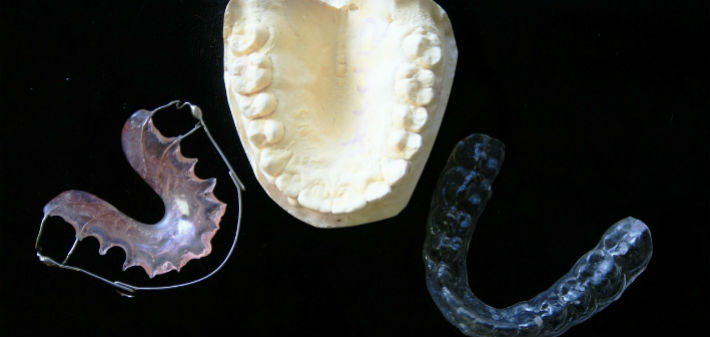Do you need a Little Rock dentist who can address your teeth grinding? Ease your concerns and take the steps needed to improve your oral today.
Teeth grinding, known in the dental community as bruxism, is an oral health condition often caused by stress, anxiety, or sleep disorders, abnormal bite, or missing teeth. If you ever grind, gnash, or clench your teeth, you need to address it. Whether done consciously or not, there are numerous dangers related to teeth grinding that can have a damaging impact on your oral health. Although milder cases of teeth grinding do not require extensive treatment, those with moderate to severe forms of teeth grinding should seek immediate dental care to address the damage and prevent future issues.
What Are the Complications of Teeth Grinding?
Many people young and old grind their teeth, but often do not understand how it affects the rest of your health. If you or your child start to complain about a sore or locked jaw, headaches, or teeth pain or sensitivity, these are signs of teeth grinding. Teeth grinding is dangerous, as it can lead to several health implications:
- Tooth damage. The wear and tear on your teeth can cause significant permanent damage. Grinding can lead to dull teeth that make biting or breaking food down difficult. It can also cause cracks or enamel damage that can invite cavities to form. Though it takes a significant amount of teeth grinding to reach this level, for some people who have this condition it can lead to long-term complications that can’t be treated without visiting a dentist.
- Restoration damage. Just as teeth grinding can wear down your natural teeth, it can also damage dental appliances, crowns, implants, fillings, and other restorations done within the mouth. This may mean you will need to frequently have costly repairs or risk other complications that are not so easy to fix.
- Jaw disorders. In some situations, grinding your teeth can lead to temporomandibular joints (TMJ). Individuals who have a jaw disorder often feel or hear a click when they open and close their mouths.
- Pain. Since grinding isn’t a normal function of the jaw, muscle tension can occur, leading to facial pain and swelling. It can also cause tension-type headaches in some.
What Can Be Done About Teeth Grinding?
If grinding your teeth has caused you pain or damaged your teeth, there are several ways you can be treated by a Little Rock dentist. If your teeth are cracked or broken, restorative options like dental crowns and implants may be suggested. For small, minor chips or uneven bite surfaces, your dentist may suggest a non-surgical option like contouring or reshaping. These only address one part of the issue, however.
To impend the grinding and reduce its impact on your teeth, custom-fitted mouth guards can be worn at night when many people are most sensitive. These are made of soft acrylic and placed in the mouth to separate the upper and lower teeth, acting as a buffer to prevent grinding.
To get to the root of the problem, your dentists may also recommend meditation, stress management, counseling, or behavioral therapy to help you to change your habits. Medications, though not commonly used, can be helpful in some cases. Muscle relaxants taken at bedtime can reduce your ability to grind and Botox injections can aid jaw pain.
What should you do if any of this applies to you? The first step is to contact Arkansas Family Dental to schedule an appointment and discuss your issues with teeth grinding. We will examine your overall dental health and work with you to create a plan of action for dealing with this or any other oral health concerns. You can overcome teeth grinding with our well-qualified professionals by your side!

